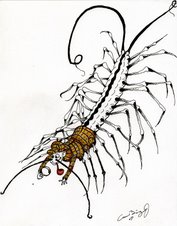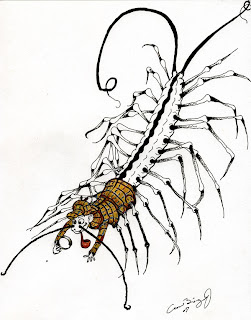 Remember all the times we tried to bury the word Stupid?
Remember all the times we tried to bury the word Stupid?The NAACP decided in April that today would be a monumental day. Meeting together for their annual summit, the traditional leaders of the Colored People's Movement came to the conclusion that today they would bury the N-Word. This is a big step for them. Nay, it's a big step for all of us.
The idea that a group can put to rest a word, something that is completely abstract, something that rarely exists in the tangible world, is (for language junkies like me) kind of a deal. I mean, how does one go about that? How does one accumulate such an overpowering influence over the meta-narrative itself that you can banish words by holding, of all things, a literal funeral. NAACP delegates carried a casket behind them with fake black flowers over the top of it. A symbolic gesture to kill a signifier, or at least to bellow to the world that the signifier could no longer be used to point to the sign it was originally intended for. Surely, my friends, we've left the age of post-modernism when something like this would be mocked and dismissed by all.
Hermeneutically, of course, they could never kill the N-Word. The trace goes on, and even talking about it as you put it in the ground reinforces the truth that the word is far more powerful than any mortal speech act. Still, its true that for more than half a century the word has come to greater and greater disfavor as it becomes less socially acceptable. So how does one effectively imprison a word? Influence the society that depends very heavily on the political power of language. It's true that as a nation we've become a little timid in our social gestures, more aware of how we are discussed by the world-at-large, more concerned with how much capital a good reputation equates to. We've become enslaved to the global dollar, and every person willing to give us one has feelings that we probably shouldn't hurt. A mentality like that very easily could lead to a truly political citizenry. That is to say, all smiles in public and backstabbers in the dark. I think we're getting to that point.
The last time the NAACP had a funeral like this, it was the symbolic laying to rest of Jim Crow in 1944. Isn't it funny how the first was a symptom of the rise of existentialism, and this one comes on the very heels of the so-called "post-ironic" movement? It's enough to make a person think that there are circles in our social history. It's enough to make that person think that you can trace them back all the way to Greece, trace them like veins in a hand following all the way back to a pulsing ideology that passes the cultural and the individual considerations back and forth through its beating filter, passing them out only to call them back. It's enough to make a person believe that the currency through which we find the base of our civilization is teeming with the overlapping history of words, the timelines of how and when they were born, that somehow those movements in our philosophical history are always a signifier for the sign of the language we use to express them. We do not note the death of a word. We do not notice the death of a word. That's what makes it dead. I doubt we will ever become so self-conscious that we, as a society, manically trace all our hermeneutic roots to find out what ideas we lost when we lost the words to express them. I think it is enough to note that the N-Word has not yet passed, try as we might. I hope that means we're still working on the problem that brought it into use in the first place.


1 comment:
Reading this post confirms for me what other's have said about you and what I already knew, that your heart may be in fiction but your real talent lies in the essay, in non-fiction.
(C)
Post a Comment